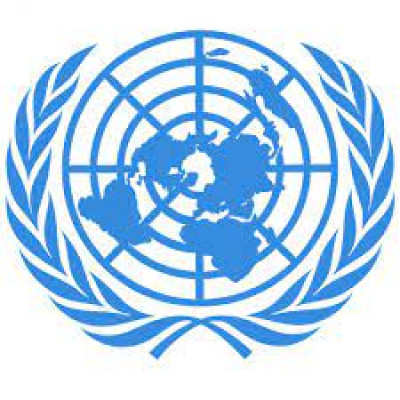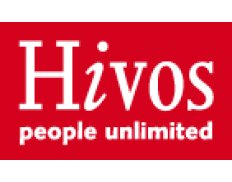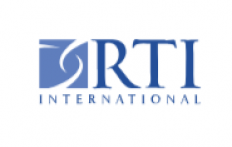Details
Description
Background
UN Women, grounded in the vision of equality enshrined in the Charter of the United Nations, works for the elimination of discrimination against women and girls; the empowerment of women; and the achievement of equality between women and men as partners and beneficiaries of development, human rights, humanitarian action and peace and security. UN Women in Georgia supports state and non-state partners towards the achievement of substantive gender equality in Georgia. In line with national and international commitments, UN Women works on the levels of policy and legislation, institutions and grassroots, in order to achieve transformative results for increased gender equality and greater protection of the rights of women and girls.
In April 2023 UN Women, with the generous support of the Swiss Agency for Development and Cooperation (SDC) launched a four-year project “Women’s Increased Leadership for Democracy in Georgia” (WILD). The project aims to ensure that women and girls in all their diversity fully and equally participate in decision-making and benefit from gender-responsive governance in Georgia. Within the framework of the project, inter alia, UN Women provides technical support to the Government of Georgia to strengthen institutional mechanisms on gender equality and to develop and implement laws and policies on gender equality and gender mainstreaming in line with BPfA+25 review process and CEDAW recommendations.
Governments, including the Government of Georgia, have committed to the principle of adequate financing for gender equality and empowerment of women and girls through numerous international agreements and partnerships. The principle of adequate financing for gender equality is rooted in the Beijing Declaration and Platform of Action adopted in 1995 (For more information on the Beijing Declaration and Platform of Action, see: http://beijing20.unwomen.org/en/about) and highlighted in the 2030 Agenda for Sustainable Development. Both documents link the achievement of gender equality and women’s empowerment with adequate and appropriate financing and make specific references to gender-responsive budgeting. As a result, gender-responsive budgeting has been gaining increased traction in public financial management, with more than some 80 countries having institutionalized GRB in one form or another.
In 2019, the World Bank designed the Public Expenditure and Financial Accountability (PEFA - The Public Expenditure and Financial Accountability (PEFA) is a framework for assessing and reporting on the strengths and weaknesses of public financial management (PFM) using quantitative indicators to measure performance. PEFA is designed to provide a snapshot of PFM performance at specific points in time using a methodology that can be replicated in successive assessments, giving a summary of changes over time. PEFA framework it is subsequently established as a standard methodology for PFM diagnostic assessments,. Since 2001 PEFA has become the acknowledged standard for PFM assessments) supplementary framework for assessing gender-responsive public financial management (GRPFM - https://www.pefa.org/news/pefa-grpfm-framework-available-english-french-spanish-and-portuguese-languages). The PEFA’s GRPFM is a set of nine indicators which collect information on gender-responsive public financial management practices. These indicators are built on the PEFA framework and mirror the mapping of PFM practices and assessment of PFM institutions, processes, and systems as typically carried out during a PEFA assessment process. As a rule, the PEFA GRPFM supplementary assessment is conducted on a voluntary basis concurrently with a PEFA assessment.
In 2021-2022, the Ministry of Finance (MoF), with the support of UN Women, conducted a self-assessment of the PEFA Gender-Responsive Public Financial Management (GRPFM). The assessment is a part of the larger PEFA evaluation and evaluates the extent to which Georgia's public finance management (PFM) system is responsive to gender. The results of the assessment are expected to enable the measurement of progress and inform a broader strategy for the Government of Georgia to improve the PFM system and establish Gender-Responsive Budgeting (GRB) practices.
To support effective implementation of the PEFA GRPFM assessment report, UN Women will recruit a national consultant.
Duties and Responsibilities
More specifically, the national consultant will be responsible for the following tasks and deliverables:
To provide technical support and guidance to the Ministry of Finance and line agencies in the implementation of recommendations under the PEFA GRPFM report
To provide capacity development support to line ministries/state agencies (including workshops, trainings, couching and mentoring) on mainstreaming gender in their respective budgets per PEFA GRPFM report recommendations
To provide continuous support to the Ministry of Finance in mainstreaming gender in PFM systems aligned with PEFA GRPFM indicators
To draft briefs, memos and other relevant documentation, including periodic updates on the status of implementation of PEFA GRPFM recommendations
To hold and participate in thematic workshops, consultation meetings, and discussions as required
To prepare a final report about the work carried out, including key observations and recommendations for follow up.
Deliverables:
Progress Report 1 – covering duties, responsibilities and a number of working days pre-agreed with the UN Women developed and submitted to UN Women by 30 August 2023.
Progress Report 2 – covering duties, responsibilities and a number of working days pre-agreed with the UN Women developed submitted to UN Women by 30 November 2023.
Progress Report 3 – covering duties, responsibilities and a number of working days pre-agreed with the UN Women developed and submitted to UN Women by 30 February 2024.
Progress Report 4 – covering duties, responsibilities and a number of working days pre-agreed with the UN Women developed and submitted to UN Women by 30 May 2024.
Competencies
Core Values:
Respect for Diversity
Integrity
Professionalism
Core Competencies:
Awareness and Sensitivity Regarding Gender Issues
Accountability
Creative Problem Solving
Effective Communication
Inclusive Collaboration
Stakeholder Engagement
Leading by Example
Please visit this link for more information on UN Women’s Core Values and Competencies: https://www.unwomen.org/sites/default/files/Headquarters/Attachments/Sections/About%20Us/Employment/UN-Women-values-and-competencies-framework-en.pdf
Required Skills and Experience
Education:
At least Master’s degree in Public Finance, humanitarian affairs, development policy, and/or any relevant field directly related to the assignment.
Experience:
At least 3 years of experience in supporting public administration and public finance management reforms
Proven experience in research and analysis in the field of gender equality will be a strong asset
Previous experience of working on PEFA and PEFA GRPFM frameworks will be a strong asset
Experience in facilitating consultations and workshops and engaging with diverse stakeholders, including CSOs, NGOs, national governments, UN agencies will be an asset.
Demonstrated experience in producing well written reports demonstrating analytical ability and communication skill will be an asset.
Language:
Fluency in Georgian and English
Evaluation Procedure:
The candidates will be evaluated in three stages: according to minimum qualification criteria; technical and financial evaluation.
The candidates must possess following minimum qualification criteria to be eligible for further technical evaluation:
At least master’s degree in public finance, humanitarian affairs, development policy, and/or any relevant field directly related to the assignment.
At least 3 years of experience in supporting public administration and public finance management reforms
Fluent in English
Fluent in Georgian
Technical evaluation criteria (including minimum qualifications):
At least master’s degree in public finance, humanitarian affairs, development policy, and/or any relevant field directly related to the assignment (max 80 points)
At least 3 years of experience in supporting public administration and public finance management reforms (max 80 points)
Proven experience in research and analysis in the field of gender equality will be a strong asset (max 50 points)
Previous experience of working on PEFA and PEFA GRPFM frameworks will be a strong asset (max 50 points)
Experience in facilitating consultations and workshops and engaging with diverse stakeholders, including CSOs, NGOs, national governments, UN agencies will be an asset (max 30 points)
Demonstrated experience in producing well written reports demonstrating analytical ability and communication skill will be an asset (max 30 points)
Fluent in Georgian and English (max 30 points)







